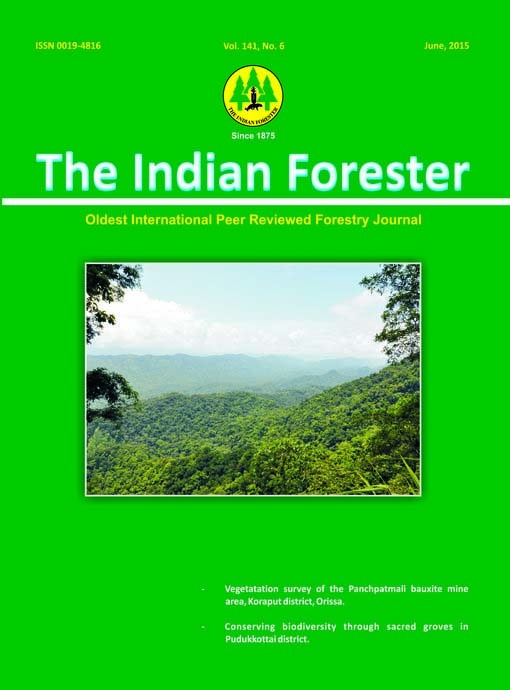Indigenous Knowledge of Tribes on Forest Management: A Case Study in Drought Prone District of Andhra Pradesh
DOI:
https://doi.org/10.36808/if/2015/v141i6/71325Keywords:
Aboriginals, Indigenous Knowledge, Global Hemorrhage, Documentation.Abstract
Indigenous knowledge is a belief, a part of tradition, and an important part of the lives of the poor. It is formed due to close propinquity of the aboriginal communities to natural resources along with generations of experience in natural resource and management. This paper is an attempt to broaden the list of traditional practices available at the local level, and to strengthen such views in forestry management science. This knowledge could be an extremely useful tool not only in involving them in forest management and development programmes, but improving their general economic condition and ensuring the long-term sustainability of forest management in the area. The paper proceeds to suggest the ways and means to incorporate their knowledge in the current forest management strategies.References
Bicker A., Sillitoe P. and Potlier J. (Eds) (2004) : Development and Local Knowledge: New approaches to issues in Natural Resource Management, Conservation and Agriculture, Rutledge, London.
GOI (2001), (Census of India), Government of India, 2001.
Landon, M. (1998): Bio-diversity conservation and Indigenous knowledge: Rethinking the Role of Anthropology. Indigenous Knowledge and Development Monitor, 6(1): 13-15.
Misra K.K. (2005): Indigenous knowledge, Natural Resource Management and Development – The Konda Reddi Experience. India Gandhi Rashtriya Manav Sangrahalaya and Pratibha Prakashan, Delhi.
Mohan Rao K. (1999): Tribal Development in Andhra Pradesh: Problems and Prospects. Books Links Corporation, Hyderabad.
Pratap D.R. (1982): 'Approach to tribal development' in: Tribal Developemtn in India; Buddadeb Chaudhury, New Delhi: Inter India Publication.
Posey D.A. and William Balee (Eds) (1985) : Resource Management in Amazonia: Indigenous and Folk Strategies. Advances in Economic Botany, 7, Plenum Press, New York.
Quiroz C. (1996): Local knowledge systems contribute to sustainable development. Indigenous Knowledge and Development Monitor 4(1): 3-5.
Sillitoe Paul (1998): The Development of Indigenous Knowledge: A New Applied Anthropology. Current Anthropology, 39(2): 223-252.
“The Hindu†daily, (2009) Tribals turn trend setters, article “Wonder Fernâ€, July 29, 2009.
Downloads
Downloads
Published
How to Cite
Issue
Section
License
Unless otherwise stated, copyright or similar rights in all materials presented on the site, including graphical images, are owned by Indian Forester.





